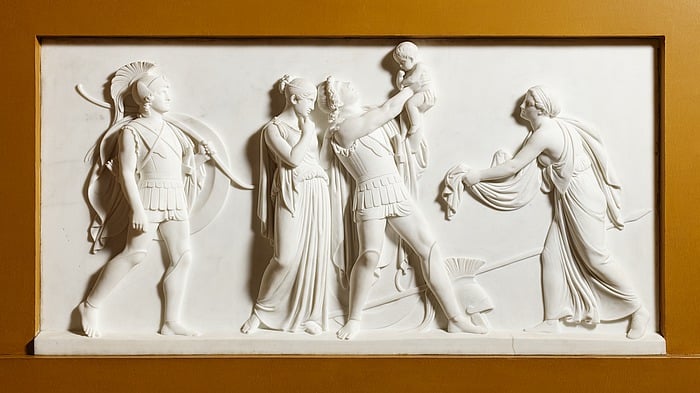Oxford University’s Classics Faculty is considering a proposal to remove the study of Homer’s Iliad and Virgil’s Aeneid from the Mods syllabus, a decision which has shocked undergraduates and tutors across the university.
The move is part of a series of reforms proposed for the the preliminary stage of the Oxford Classics degree, known as Honour Moderations. Unlike students of other humanities courses, who sit their preliminary examinations at the end of first year, moderands sit their exams in Hilary of second year. Mods consist of ten papers based on material covered over the four terms preceding the examinations, two of which cover Homer’s Iliad and Virgil’s Aeneid.
The content of the Mods course, as well as the way in which it is taught, has come under increasing scrutiny in recent years, largely owing to the significant gaps in marks attained by Course I students, who have studied Latin and/ or Greek to A-Level, and Course II students, who study one of the two languages ab initio. There is also a significant gender gap in marks received for candidates sitting both Mods and Finals.
A number of other proposed reforms, which include changing the way in which Courses I and II are differentiated, as well attempts to standardise and increase the amount of language tuition available to all Classicists have been welcomed and praised across the faculty. However, many students and tutors have regarded the removal of Homer and Virgil as unnecessary and a step too far.
Jan Preiss, a second year undergraduate studying Classics at New College and the president of the Oxford Latinitas Project, has set up a petition to stop the proposal from further consideration and to rally support for its reversal among both students and educators at the university.
Speaking to Cherwell, Preiss said: “Removing Homer and Virgil would be a terrible and fatal mistake. [The proposal] would mean that firstly, Oxford would be producing Classicists who have never read Homer and never read Virgil, who are the cen-tral authors of the Classical tradition and most of Classical literature, in one way or another, looks back to Homer and interacts with the Iliad. Removing it would be a shame because Homer has been the foundation of the classical tradition since antiquity and it is impossible to understand what comes after him without studying him first.
“One of the big issues is that these reforms are marketed as ones that will increase access, but the proposal [to remove Homer and Virgil] would go completely against this because it will effectively mean that there will be people coming to Oxford with previous knowledge of Homer and Virgil, who have studied Latin and Greek at school, but no one else will be taught Homer or Virgil until Greats (the second part of the course) and that is only if they choose it as an optional paper. Because of how fundamental the study of Homer and Virgil is, it would put the latter group at a disadvantage in trying to understand the literary canon and this disadvantage would carry through Mods and possibly beyond.”
Preiss went on to praise a number of other reforms that have been proposed, including the removal of the labels “Course I” and “Course II” and their replacement with Beginner, Intermediate and Advanced levels, as well as the proposed construction of text-based papers designed to simultaneously aid students’ grasp of the classical languages. However, he along with others believe that removing the study of Homer and Virgil from the Mods syllabus would be an extreme step.
Classics is one of the few courses at the university which is perhaps as old as the institution itself, and the study of Homer and Virgil is one that has been continuous and uninterrupted since the course’s inception. As the faculty approaches its fifth decade of accepting ab initio students of Latin and Classical Greek, many of its members, both students and tutors, are rightfully sceptical about whether removing Homer and Virgil from the syllabus would really be a move that benefits these students.
Regardless of the outcome of the debate within the faculty regarding the passage of such proposals, it is clear that the new decade is one that has brought new challenges for Oxford’s oldest course, which will surely be followed by classicists and non-classicists alike with interest.
A spokesperson for the University of Oxford said: “Over the last thirty years, the number of students starting the undergraduate classics course with both A-level Latin and Ancient Greek has decreased, and the number of those acquiring one or both ancient languages while at Oxford has increased.
“The Faculty of Classics monitors these changes and keeps the course under review to keep it equally stimulating and engaging for all students. In this connection we are reviewing the first part of the course, called Honour Moderations in Classics. As part of this we are considering the question of whether Homer and Virgil are best studied in the first part of the course or the second. We are currently consulting staff and students and no final decision has been made.”



